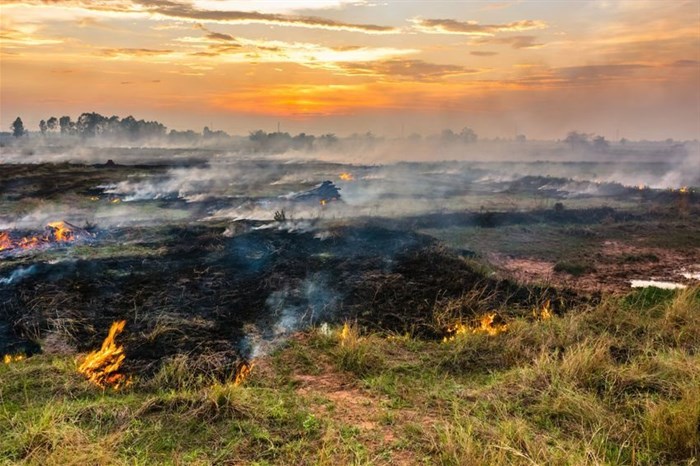
Related
Top stories






More news

















Logistics & Transport
Uganda plans new rail link to Tanzania for mineral export boost









"Over the years, we have seen the negative impact that veld fires have caused to farmers, in certain parts of the country, as they try to recover from a very difficult time that goes as far back as the 2015/2016 season during the drought," says Dawie Maree, head of information and marketing at FNB Agribusiness.
During the dry season, veld fires can spread quickly destroying not only farms but also infrastructure and causing destruction in neighbouring residential areas as well. Furthermore, power surge risks following loadshedding, coupled with consumers mistakenly leaving items such as heaters and stoves on could potentially result in fires. Furthermore, the use of candles or outside fires can also lead to fire risks, especially in rural areas” he adds.
The negative repercussions of the fire outbreaks have resulted in increased loss of agricultural production in the past. Consequently, this has also caused food insecurity for both humans and livestock. In some instances, we have seen equipment being damaged because of veld fires which resulted in serious financial challenges to the farmers.
After contracting by 12.3% year-on-year in the first quarter of 2023, the industry needs to take the necessary measures to avoid risks that can dampen the confidence and growth of the sector going forward. Earlier indications show that the lingering EI Niño weather pattern may dampen the outlook if it turns out to be deeper than expected.
Maree says: "Long-term disaster management plans should be put in place to manage and control risks of veld fires. He emphasizes that this should not only be during the winter season but throughout the year so that people become accustomed of the risk management measures that farms take to mitigate and manage risks during unforeseen circumstances."
Farmers must consider having a fire management plan, collaborate with government and other farmers to follow procedures or protocols that will avoid disasters when starting fire in their areas, always keep fire equipment in good condition, maintain adequate firebreaks, have adequate insurance, and have regular stakeholder engagements with communities to raise awareness and educate them about veld fires.
“Veld fires are not unique to South Africa; the impact has been severe in the past and put farmers on the back foot after a challenging couple of years. Taking a proactive approach and ensuring that risk measures are in place will go a long way,” concludes Maree.